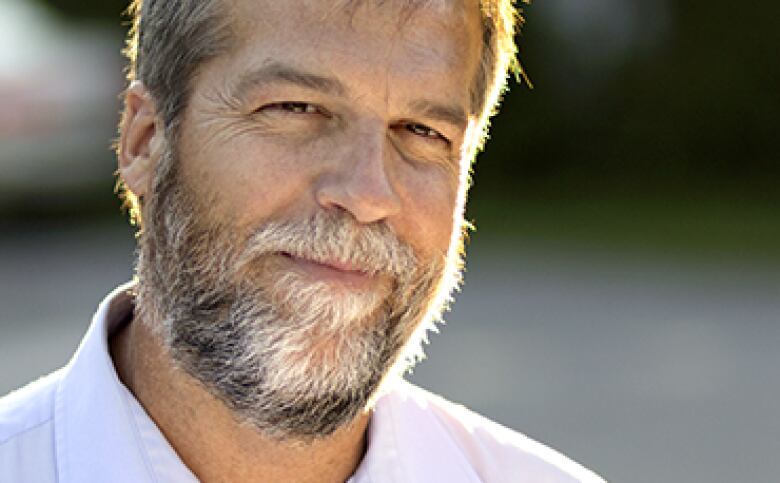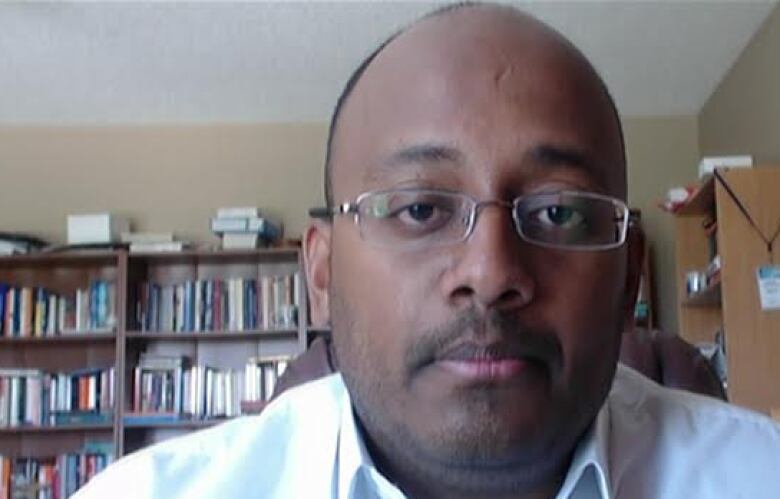Canada's deradicalization strategy has a political blindspot, say critics
Deradicalization efforts have focused too much on religious, social aspects, not enough on politics, say some

Canada has ablind spot whenit comes to its efforts to counter theradicalizationof young Muslims and other disaffected youth,and hidden in it are the political grievances ofyoung people who feel they have no way to air their views or effect change, some experts warn.
Phil Gurski is aformerCSISanalystwho spent15 years atthe spy agencyspecializing in homegrown terrorism and violent extremism. Hefound that the government'sforeign policies played asignificant role in the radicalization of some individuals.
"It's a really hard thing to tell your government, 'By the way, your policies are problematic,'" he said. "Governments are not comfortable talking about it because it forces them to be self-critical of their own policy but it cannot be ignored."
Gurski says that Canada has taken positive steps toward thwarting the threat of violent extremism through such prevention programs as Calgary's police-run ReDirect and Montreal's anti-radicalization centre.
But, he says, these effortshave focused largely on social and psychological factors andignored themore uncomfortable driver of radicalization:foreign policies that feed into anarrativeof Western aggression against countries with predominantly Muslim populations.

"Every single plot we've had dating back to the Toronto 18 was predicated largely not solely but largely on this notion that our foreign policy is anti-Islamic or, in fact, killing Muslims,"Gurskisaid.
"That is the reality. They (extremists) tell us that. They tell us that in their statements. They tell us that in theircellphonevideos."
That is, in fact, what Michael Zehaf-Bibeau did before carrying out a shooting on Parliament Hill in October 2014 that left a Canadian soldier dead.
"This is in retaliation for Afghanistan and because [Prime Minister Stephen] Harper wants to send his troops to Iraq," he said in a shortvideomanifesto found on his cellphone after he was killed in the attack.
'People like me don't air their views'
It's a point that resonates with oneTorontoareaman who says that, in the aftermath of 9/11, he thought about going to Iraq to join insurgents fighting against the United States. CBC News agreed to conceal the man's identity because of his fears that he might be branded an extremist.
"I could be considered a radical to some," he said. "That's why people like me don't air their views."
The man, who is in his thirties, says the reasons why he ultimately chose not to travel to Iraq are varied.
"I did contemplate joining them in fact, I seriously contemplated it but I never went. It was a thought. I was questioning."
If we want to address the scourge of terrorism in any meaningful way, we have to acknowledge the government's role.- Young Ontario man who contemplated fighting with insurgents in Iraq
There are signs that Canada is stepping up its deradicalization efforts. The federal government earmarked$35 million in its budget for a new community outreach andcounter-radicalizationco-ordinator, and in April, the Canadian Council of Imams announcedplans to open two to three deradicalization "clinics" in Toronto as early as this fall.
Headed by former CCI chairmanHamid Slimi, the clinics will take "a holistic approach," providing religious counselling andaccess to psychotherapists and social workers.
"There are people who use religion to justify their acts, and these people are extremists," Slimisaid. "So, you need to go to people who are leading the community on the religious level: imams."
Touchy subjects
Deradicalizationcentres aren't anew idea, says Gurski, butwhat is differentabout the Toronto initiative is that itcomes from within the religious community rather than from the government or the justice system, whichhas attempted to mandate religious counselling insome cases.
In January, the federal parole boardincluded religious counselling in the parole conditions ofSaad Gaya, who pleaded guilty to participating in a bomb plot as a memberof the so-called Toronto 18. Religious counselling was also orderedforAaron Driver, a Winnipeg manwho tweeted support for ISIS under an alias in 2014, before his lawyer had it dropped from his bail conditions.
The Toronto man who spoke with CBC saysit's unlikelythe new clinicswilladdresshis political grievances or those of others who'veconcluded thatviolence is their only recourse.
"I don't care about imams," he said. "If we want to address the scourge of terrorism in any meaningful way, we have to acknowledge the government's role."
- David Cameron'santi-extremism efforts called worthy but tone-deaf
- Winnipeg Muslims speak out against extremists
Many imamsdon't feel equipped or comfortable engaging in political debates, saysAmarnathAmarasingam, a post-doctoral fellow in religious studies at theUniversity of Waterloo.

"Even just a couple of years ago, if an imam talked about jihad or Palestine or Syria, they would get on the radar (of intelligence agencies)pretty quickly or be suspected of having radical leanings as if the fusion of religion and politics automatically leads to radicalization,"Amarasingam said.
The fear that some political views mightbe seen as too extreme to be expressed at allcan drive someyoung peopleinto the arms of radicals, who mightgive them a means of translating their views into violent action, Amarasingam says.
"These youth are coming to their religious leadership with genuine questions, and they need an avenue through which to have these conversations," said Amarsingam. "Otherwise, they're going to find it elsewhere through people like Anwar al-Awlaki and so on, who are having those conversations."
Vocal oppositionwithout the violence
Having interviewed dozens of foreign fighters and would-be extremists, Amarasingam says many of them wantto transform society in somemeaningful way andhave aseat at thetable when it comes to influencing foreign policy.
"It sounds almost silly to say, 'You should write a letter to your MP' or 'You should protest' when 250,000 Syrians have been killed and seven million refugees have left the country," Amarasingam said.

For Gurski, the question going forward is, "How do we get to the point that youth feel comfortable to be very, very vocal about what they feel about politics but don't cross that threshold to violence?"
The Ontario man who spoke to CBCsaid that depends on whether young people's political participation can bring aboutactual change.
To Amarasingam, finding a way to include disillusioned youth in the political processis the crux of the problem.
"Canadian foreign policy isn't going to be determined by [the question], 'Is it making some youth angry?'" he said.
But as long as radicalization is treated simply in religious or mental health terms, the problem willpersist.
"That's the elephant in the room," he said.












_(720p).jpg)


 OFFICIAL HD MUSIC VIDEO.jpg)
.jpg)



























































































